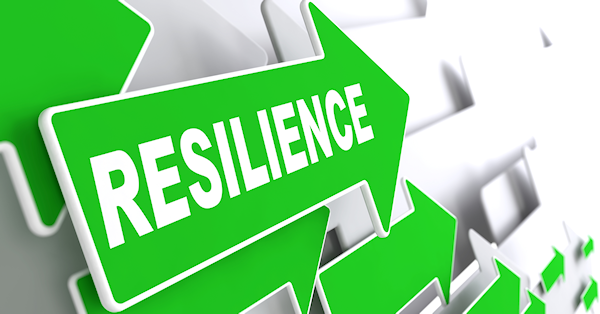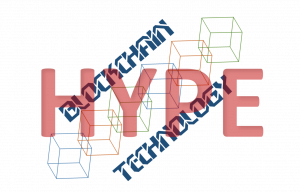Supply chain resiliency has been a much-discussed topic during the COVID-19 pandemic. Rebecca Liao (@beccaliao), Co-Founder and Executive Vice-President at SKUChain, and Ziyang Fan (@ZiyangFan), Head of Digital Trade at World Economic Forum, assert resiliency begins with visibility. They explain, “In the wake of supply chain disruptions due to coronavirus, several experts have reiterated the need to obtain more visibility across the chain. … Obtaining this visibility is considered key to optimizing supply chain efficiency and agility during normal production. When critical supply chain disruptions hit, this visibility becomes crucial to understanding the impact of the disruption on the rest of the chain so that others in the ecosystem can plan and take action, such as developing routes to alternative suppliers.”[1] They observe that many companies have little visibility beyond their tier 1 providers. To overcome multi-tier blindness, they insist supply chains must be digitized. They write, “Digitizing is not simply a matter of cost, but primarily of visibility and managing supply chain risk. To limit the impact of points of failure in the value chain, it is important to make data available through digital means.”
Here’s the rub. “When the data in these communications needs to be distributed to more parties,” they write, “traditional supply chain systems, which are centralized, cannot grant independent and auditable access controls to each individual party.” According to Liao and Fan, what is required is “a decentralized system” that gives “suppliers the privacy they need and buyers the visibility they want. A blockchain with either private or public permissions meets this criteria.” In other words, the quest for better visibility and improved resiliency will inevitably lead companies to adopt blockchain (aka distributed ledger) technology. Author and educator Ahmed Banafa (@BanafaAhmed) notes, “For many products, the supply chain can span hundreds of stages, multiple geographical (international) locations, a multitude of invoices and payments, have several individuals and entities involved, and extend over months of time. Due to the complexity and lack of transparency of the current supply chains, there is high interest in how Blockchains might transform the supply chain and logistics industry.”[2]
Blockchain in the supply chain
If you are unaware of what blockchain technology entails, Sean Galea-Pace (@JournoSeanGP) offers this simple explanation: “Blockchain is essentially, as the name suggests, a chain of blocks. However, instead of a physical chain, there’s digital information (the block) stored in a public database (the chain). When a block stores new data, it is added to the blockchain.”[3] He goes on to explain four things must happen for the chain to remain intact. They are: 1) A transaction must occur; 2) The transaction must be verified; 3) The transaction must be stored in a block; and, 4) That block must be given a hash (i.e., added to the chain). He also explains how this technology can be useful for supply chain management. He writes:
“There are several key ways in which blockchain is useful in the supply chain. These are:
- Provenance tracking — Large organizations have complex supply chains. This means it is much harder to keep track of all records for multinational companies. This lack of transparency can affect organizations significantly. In a blockchain-based supply chain management, record keeping and provenance tracking is made easier as product information is accessed by embedding sensors and RFID tags.
- Cost reduction — Real-time tracking of a product in the supply chain through the help of blockchain can reduce the overall cost of moving items in a supply chain. Following a survey of supply chain workers by the Digital Supply Chain Institute, over one third of people cited reduction of costs as the topmost benefit of application of blockchain in supply chain management.
- Establishing trust — Developing trust in complex supply chains with large numbers of participants is key to smooth operations. For example, if a manufacturer shares its products with suppliers, the manufacturer should be able to depend on that supplier to follow factory safety standards.”
Members of the editorial staff at PYMNTS.com write, “Blockchain is becoming something of a ‘safe deposit box’ for retail data, offering a digital method for storing and sharing data between multiple stakeholders.”[4] They add, “Industrial spending on blockchain is expected to exceed $11.7 billion by 2022, and it’s no wonder: From retail to manufacturing to quality assurance, blockchain is being used to maximize the value of data and to streamline data processing and transmission. Despite the burgeoning bandwagon, the hype surrounding the blockchain rush is based on solid science. Due to the structure of blockchain technologies, there are extra layers of security that don’t exist in earlier digital technologies.”
Blockchain remains in its early stages
Although the above discussion makes it sound like blockchain is a done deal, it’s not. Currently, the best thing you can say about blockchain technology in the supply chain is that it has real potential. Robert J. Bowman, Managing Editor of SupplyChainBrain, writes, “If you listen to the apostles of blockchain, it’s the answer to just about every problem imaginable. So it figures that they would get around to touting the technology’s efficacy in supply-chain management.”[5] He adds, “The most obvious application of blockchain to the supply chain is traceability. Retailers and distributors have struggled for years to identify the provenance of their products all the way back to the farm, the smelter, and the mine. That’s especially the case with food, for which a means of determining origin is critical in the event of contamination or the need for a sudden recall. Blockchain would seem the ideal tool for such instances, given its promise of an immutable record of transactions that’s dispersed over multiple computers. … All well and good, except that blockchain has yet to fulfill the promise of total and instant visibility of product and accompanying data.”
In order for a blockchain system to work, everyone connected to the system must abide by identical protocols. Today there are several competing blockchain systems which means standardization is a big hurdle for many companies. There are also issues with scalability and transaction speeds. Fortunately, most supply chain blockchains are private ledgers which makes those issues manageable. Despite current shortcomings, pundits remain hopeful blockchain technology can make a big impact in supply chain operations. Michael Lierow (@MichaelLierow), Cornelius Herzog, and Philipp Oest, analysts at Oliver Wyman, explain, “Supply chains today are inherently complex, encompassing many players from around the world. Many supply chains face challenges that have significant implications in terms of cost, speed, and (product) quality. In our experience, the most critical supply chain challenges — despite years of efforts and often significant investments — are lack of transparency due to inconsistent or even unavailable data, high proportion of manual (paper) work, lack of interoperability, and limited information on the product’s lifecycle or transport history. In many cases, blockchain applications can counter these inefficiencies and add new value.”[6] So convinced are they of blockchain’s potential, they call it the backbone of the digital supply chain. “Blockchain is more than a pure electronic data interchange (EDI),” they write, “it is the backbone of digital supply chains, offering distinct advantages over today’s conventional supply chain IT infrastructure and analytics capabilities.”
Concluding thoughts
Most critics seem hopeful current blockchain challenges can be overcome. Liao and Fan conclude, “It’s crucial for all parties to have visibility into the supply chain, to share data, and communicate effectively. Technologies accompanied by enabling policies can play a significant role in rebuilding the trade and supply chain system, and making the supply chain more shock-proof in the decades to come.” Blockchain may be one of the most essential technologies in improving supply chain resiliency.
Footnotes
[1] Rebecca Liao and Ziyang Fan, “Supply chains have been upended. Here’s how to make them more resilient,” World Economic Forum, 6 April 2020.
[2] Ahmed Banafa, “Blockchain Technology and Supply Chain Management,” Datafloq, 22 June 2020.
[3] Sean Galea-Pace, “What is blockchain’s role in supply chain?” Supply Chain Digital, 7 May 2020.
[4] Staff, “How Blockchain Is Transforming The Supply Chain,” PYMNTS.com, 9 March 2020.
[5] Robert J. Bowman, “When Will Blockchain Be Ready for the Supply Chain?” SupplyChainBrain, 27 April 2020.
[6] Michael Lierow, Cornelius Herzog, and Philipp Oest, “Blockchain: The Backbone Of Digital Supply Chains,” Oliver Wyman, 2017.





